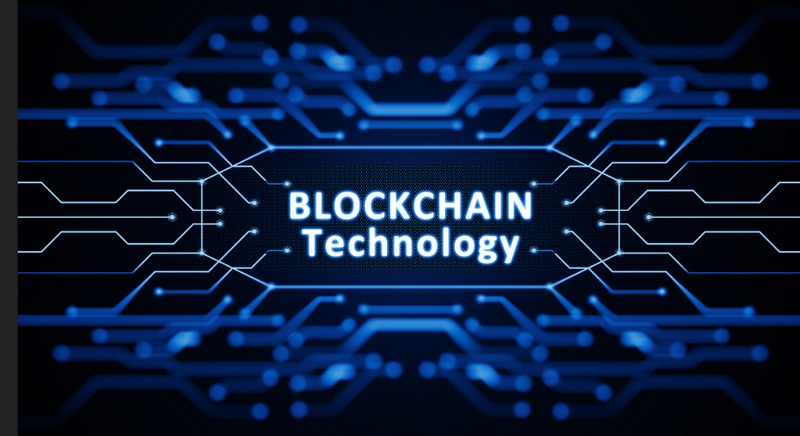WHO CONTROLS THE BLOCKCHAIN?

By HIVE Blockchain - 23 May 2018
Blockchain is a world-changing technology and has gained much attention in the news and on the Internet in the last few years. This publicity has helped ignite the digital currency boom we see today. Bitcoin and blockchain are seeing worldwide adoption across a wide variety of industries, including finance, healthcare, government, and supply chain.
Who actually controls the blockchain?
Government regulation
Recent digital currency headlines have mostly centered around governments and their attempts to regulate digital currency within their country’s borders. This includes countries like China, which has banned Initial Coin Offerings (ICO) and crypto exchanges. Russia has signaled that Bitcoin is not a viable currency within their country. In the U.S., governing bodies can’t decide whether to treat digital currencies as securities, assets, or otherwise.
Other countries have expressed unequivocal support for digital currencies, even dabbling in the idea of creating a country-specific coin. Dubai, for example, is currently utilizing Bitcoin’s underlying technology, blockchain, to make government processes more efficient.
One very important thing to understand, however, is that while governments have a say in what their citizens do with Bitcoin and how they report their gains on their taxes, no government in the world controls Bitcoin as a whole. This is because Bitcoin itself is decentralized and open-source.
What does “open source” mean?
The term “open source” became widespread in the 90s, although the concept existed well before then. Open source means that the code used in a program or piece of software is freely distributed for anyone to read, analyze, and change. Open source sharing, which some term a philosophy or movement, allows for collaboration and transparency and facilitates rapid prototyping. Anyone, including you, can easily download the source code for Bitcoin and recommend changes.
The community may or may not accept your suggested changes, but the option is there for anyone who feels they can improve Bitcoin's software. Many user-suggested changes have been implemented over the years since Bitcoin’s first release in 2009.
Bitcoin benefits from being open source because users can spot vulnerabilities in the source code and suggest improvements. Being open source also keeps Bitcoin out of the hands of any single developer or organization. It’s open and accessible to anyone who has the equipment to download, view and run the code.
What is decentralization?
Anything that falls into the hands or property of a single entity is said to be centralized. This can be a single government controlling a monetary system, an individual person controlling policy, or a sole corporation setting prices in a market. Bitcoin functions in the exact opposite way. It’s decentralized, meaning that the currency rests in the hands of many different people and entities all at once. Anyone who is a member of the Bitcoin community or who runs Bitcoin software essentially shares ownership of the Bitcoin network.
When someone downloads the Bitcoin blockchain, which houses all Bitcoin transaction records that have taken place since its inception, they help prevent future network centralization. As long as individuals and infrastructure companies like HIVE are involved with Bitcoin, it remains in the hands of the masses in a decentralized form. Bitcoin’s decentralization isn’t preserved only by those acting as full nodes (a record-keeping Bitcoin database maintainer). It’s preserved by the Bitcoin community as a whole.
Who’s involved in the Bitcoin community?
The Bitcoin community includes everyone who interacts with Bitcoin in any way, shape, or form. Anyone who connects to the Bitcoin network serves as a “node” for the network. However, people engage in a variety of ways.
Developers
Bitcoin developers are those who make changes and improvements to Bitcoin’s source code. Bitcoin developers implemented the changes that allowed miners to use Graphic Processing Units (GPUs) instead of CPUs. Bitcoin developers also fixed the bug that caused the value overflow incident of 2010, a solution that was implemented within hours of the overflow thanks to the open-source nature of Bitcoin. Here is a list of developers whose contributions and changes to the main Bitcoin network have been accepted since August 30, 2009.
Traders
Bitcoin traders are those who exchange Bitcoin for other currencies, and vice versa, in order to turn a profit. Traders’ purpose on the network is to offer liquidity. They enable others to buy, sell, and make transactions with Bitcoin.
Holders
Holders of Bitcoin (some of which are HODLers, a crypto meme derived from the backronym "hold on for dear life" that originated as a typo) are people who keep their Bitcoin safe in their digital wallets rather than trade it. Holders remove Bitcoin from the ecosystem, which affects the liquidity and, subsequently, price. In short, holders create scarcity, which drives up the price of Bitcoin over time.
Miners
Miners form the backbone of the Bitcoin ecosystem. Miners are rewarded with Bitcoin for their contributions to the network, which they do by way of verifying transactions. Mining can be a lucrative business, but it mainly provides the critical infrastructure for the Bitcoin blockchain. Miners create new blocks of data to add to the blockchain, thus allowing trades and purchases to occur on the network. New blocks are needed because each block can contain only a certain amount of transaction data.
As transactions increase, so does their associated data, creating a need for more blocks in the Bitcoin blockchain. Miners are needed to mine new blocks, which they do by executing code functions with the Bitcoin algorithm. In this way, miners provide Bitcoin with its basic digital currency functionality. Mining is a highly competitive industry, and without it, there would be no blockchain or Bitcoin to speak of.
SUGGESTIONS
Both AI and its Blockchain creations need to be strictly controlled by a bilateral group of technicians to avoid, 1. The AI takeover of Humanity, and, 2. The misuse of private data by Governments and private companies. Access to data will only be allowed as agreed by a contract.

